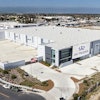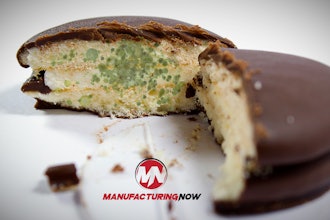Consumers are moving private label food and beverage products to the front of the cupboard
Every week, there are news reports and blog chatterings about how consumers are "trading down" to private brands in this difficult economy. The growth of private labels has been interesting to watch. Just look at Costco, Target, Wal-Mart, Kroger, Albertsons, Safeway, Food Lion, Trader Joe's, Central Market, Wegmans, Wild Oats . . . and this is just a sampling.
It is true that the recession has tightened household budgets and American consumers are increasingly choosing private labels over major brands. Shoppers worried by job insecurity, decimated retirement plans and the downturn in the housing market are growing increasingly price sensitive. But shoppers – including upper-income consumers who are buying private brand grocery products – may not feel as if they are "trading down" at all, but instead believe they are buying smarter.
I think that this recession will change the way consumers shop long after the recovery’s impact has spread. Private label sales have historically increased at a greater rate during a recession than they decline in a recovery. The perceived value and quality of private label products is a major factor in influencing consumers to switch from major brands to private labels. And the comparison of private label products to brand products is a very important part of buying smarter. When consumers find little quality difference between private label and major brand products, there is a reduced necessity to return to former brands once the economy recovers.
Unlike other recessionary periods, the private label products now on offer are not just cheap imitations of familiar brands. Store brands are striving not only to keep up with, but also to surpass, their branded rivals in terms of innovation, bringing a new focus on ingredients for health and wellness in particular.
Apart from private label products competing on the health and wellness ingredients front, the economic uncertainty has had a big effect on other forms of innovation in the food and beverage sector. This is not simply because shoppers are "trading down" from their favorite brands, but because they are buying more premium in-home meals as they cut down on eating out. It has also been shown that folks are buying more lunch products, such as private label soups, for eating in the office instead of eating lunch out.
Responding to this trend, private label is increasingly providing upscale products that promise quality ingredients. Since the 1970s, private label products have increased in quality to a level that many consumers find acceptable. So although 75% to 85% of grocery sales still come from branded products, private label has increased their presence in the past year and gained a greater share of the consumer’s confidence.
What does the future hold? Although it is clear that "The Great Comeback," as we call it around here, has already begun, we can expect continued growth in the private label sales of the grocery industry for 2009 and for the foreseeable future. According to a recent news release, Kroger Co., the largest U.S. grocery-store chain, said that it generates 27 percent of its sales revenue from its exclusive Kroger brands. And according to an industry spokesperson, U.S. sales of private-label food rose 10% in 2008, while branded products squeaked out a sales gain of 2.8%. That’s a big difference any way you slice it!
To read more about supply chain issues, click here to visit the Tompkins Associates blog.
Private Label Foods Prevail in Recession
Consumers are moving private label food and beverage products to the front of the cupboard Steve Simonson, Tompkins Associates Every week, there are news reports and blog chatterings about how consumers are "trading down" to private brands in this difficult economy. The growth of private labels has been interesting to watch.
Aug 19, 2009
Latest in Home
















